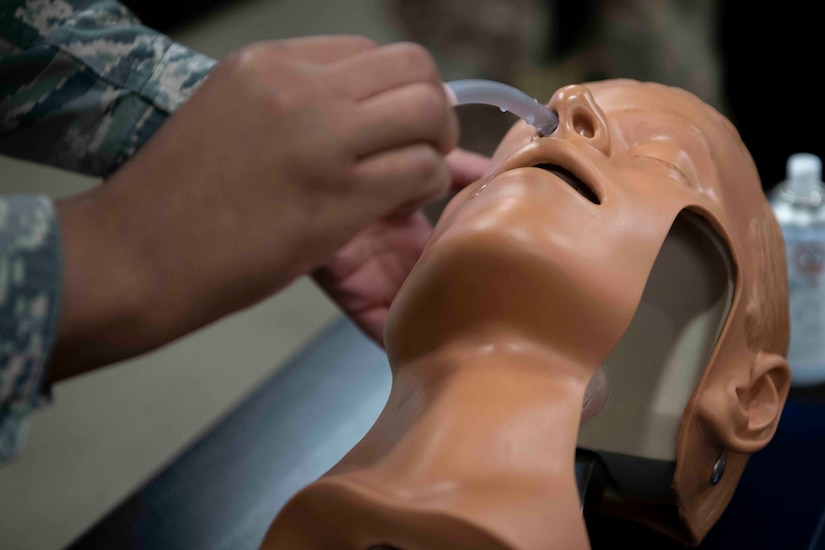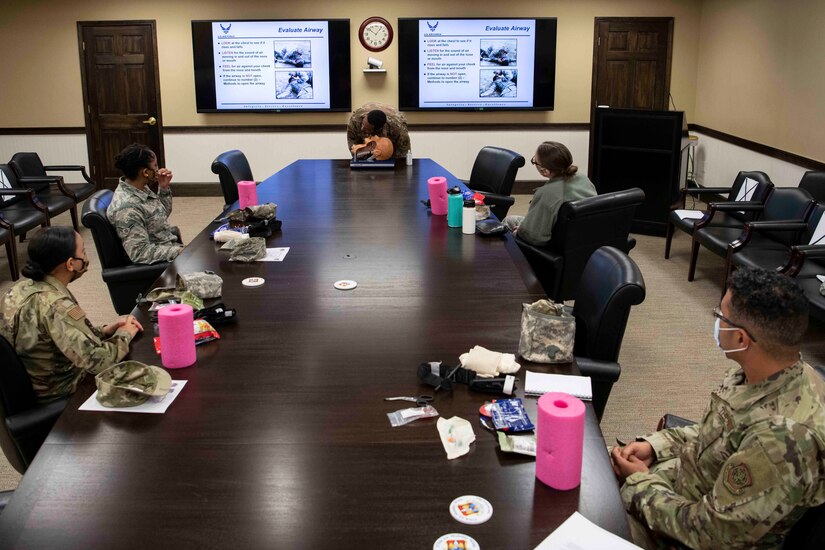Oct. 2, 2020 | , 375th Air Mobility Wing
"Is it safe for you to move them? Are they breathing? How do you stop the bleeding?" asks Air Force Master Sgt. Robert Radford, the Self Aid Buddy Care instructor during the most recent class on Scott Air Force Base, Illinois.
At his cue, several airmen who, working through COVID-19 restrictions, jumped into action to implement the skills they learned just moments before.

Because military members can be deployed to hostile environments or respond to humanitarian missions, they need to be equipped with the skills to perform basic medical care in the field because it may save a life or limb.
They may also use those skills in their everyday lives, and that's why Radford said it's part of the reason he wanted to teach SABC. Earlier in his career, he knew of two other airmen who witnessed a horrible motorcycle accident and used their training to save the lives of the three people involved.
Now, as a 375th Air Mobility Wing safety superintendent, he said he takes pride in teaching these life-saving techniques.
"The purpose of SABC is to teach our members how they can either perform first aid on themselves or their buddy to preserve eyesight, limbs or life," Radford said.
Students learn airway management, bleeding control, how to handle chest wounds and eye injuries, patient transport and documentation of patient care.

"Most of the time when we are put in those types of situations, it is like a light switch," he said. "So, you think you may have forgotten it, but it's locked away and becomes available when needed because you trained for that."
Although COVID-19 operating procedures have impacted the way the course is conducted, airmen are still able to practice using the life-saving materials, such as tourniquets, emergency bandages and nasopharyngeal tubes, on themselves and on an airway management trainer mannequin.
Airman 1st Class Kendra Zollicoffer, with the 375th Comptroller Squadron, said she was glad to understand the basics of SABC so she could respond appropriately if she needed to use the training while deployed.
Radford added, "The small part that we do hands-on is still important because, COVID [pandemic] or not, we are still deploying, and we still have to be ready to fill those spots."








No comments:
Post a Comment